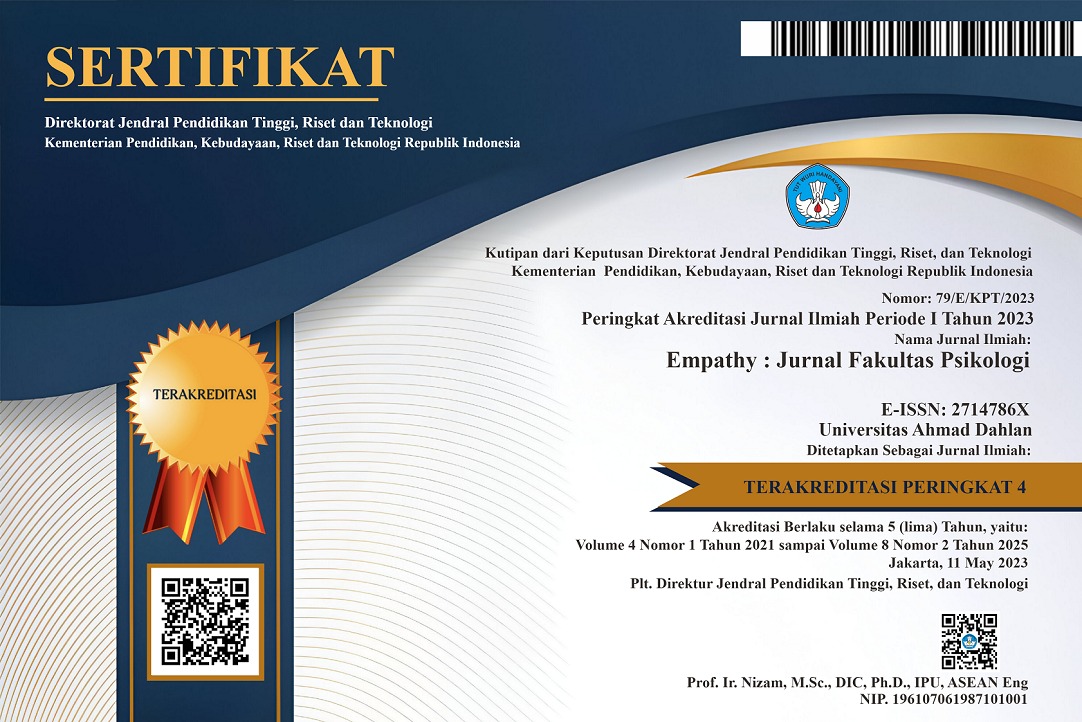Authoritarian Parenting and Self-Concept With Emotional Maturity on Students at SMA
DOI:
https://doi.org/10.12928/empathy.v6i1.24843Keywords:
Authoritarian parenting, Emotional maturity, Self-conceptAbstract
Pola asuh otoriter dan konsep diri dengan kematangan emosi siswa SMA
Adolescence is considered an emotionally difficult time. This is because teenagers who ignore many stimuli can cause emotional outbursts. Adolescents with mature emotions give a stable emotional reaction, not changing from one feeling or mood to another. Emotional maturity in adolescents is necessary to get parental attention, especially what happens in adolescents. This study examines the relationship between authoritarian parenting and self-cothe ncept of passionate matmaterial students SMA Negeri 4 Tanjungpinang. The method used in this study is quantitative. The variables in the study were measured using the emotional maturity scale, authoritarian parenting scale, and self-concept. The population in the study were students of class XI at SMA Negeri 4 Tanjungpinang. The sample of this study was 82 students at SMA Negeri 4 Tanjungpinang obtained through a simple random sampling technique. The data analysis used in this study is multiple regression analysis with the help of SPSS version 22.0 for Windows. The result of data analysis showed: (1) there is a very significant relationship between authoritarian parenting and selself-concept with emotional maturity in students, (2) there is a very substantial negative relationship between authoritative parenting and emotional maturity in students, (3) there is a very substantial positive relationship between self-concept and emotional maturity on students. This study concludes that there is a relationship between authoritarian parenting and self-concept and emotional maturity in students.
Downloads
Published
Issue
Section
License
Authors who publish with Empathy: Jurnal Fakultas Psikologi agree to the following terms:
- Authors retain copyright and grant the journal right of first publication with the work simultaneously licensed under a Creative Commons Attribution License (CC BY-SA 4.0) that allows others to share the work with an acknowledgment of the work's authorship and initial publication in this journal.
- Authors are able to enter into separate, additional contractual arrangements for the non-exclusive distribution of the journal's published version of the work (e.g., post it to an institutional repository or publish it in a book), with an acknowledgment of its initial publication in this journal.
- Authors are permitted and encouraged to post their work online (e.g., in institutional repositories or on their website) prior to and during the submission process, as it can lead to productive exchanges, as well as earlier and greater citation of published work.

This work is licensed under a Creative Commons Attribution-ShareAlike 4.0 International License.



